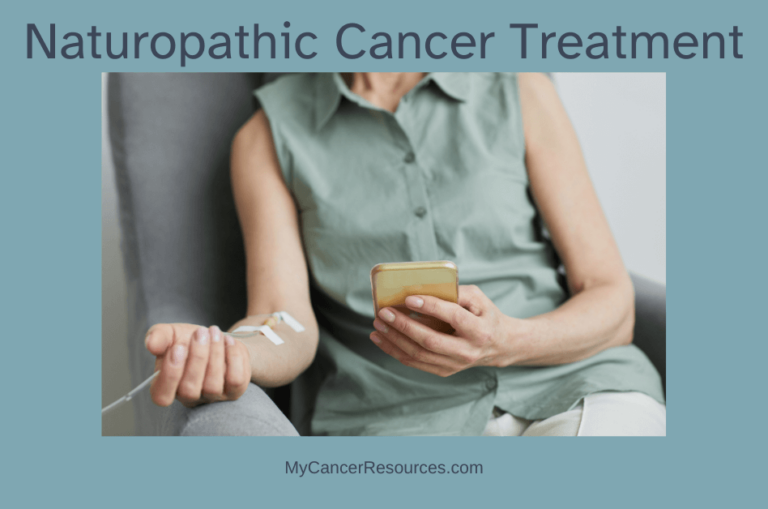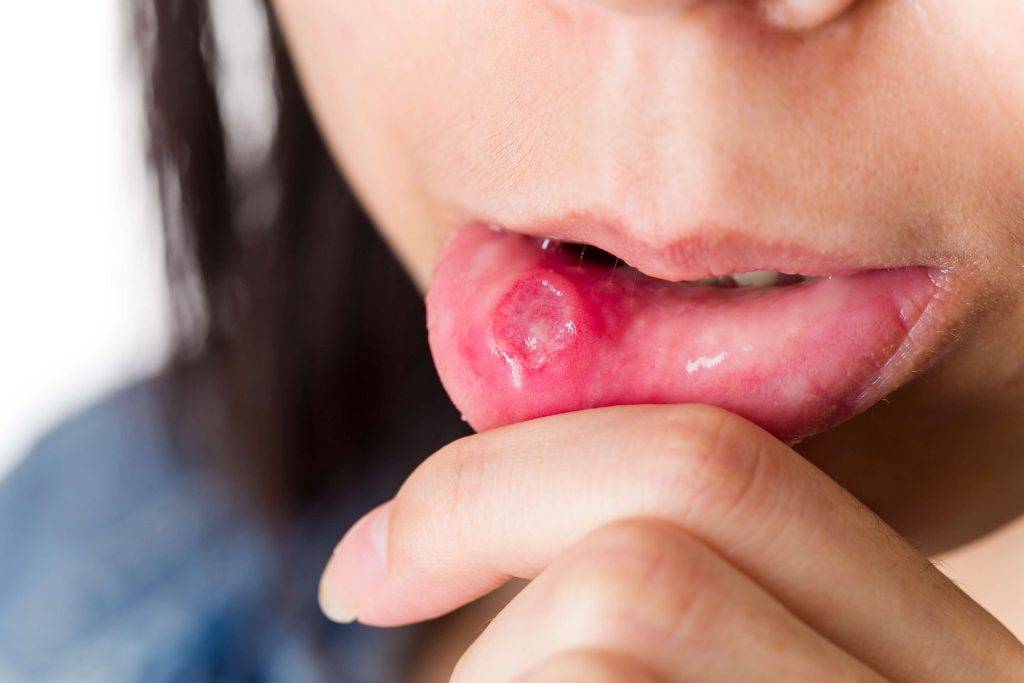
I’m often asked by new and old clients about natural options to either help them relieve the side effects of traditional cancer treatments, as a way to ‘boost’ the benefits of the treatment they’re already getting, or a different approach to treating their disease altogether. Since I support clients whether they choose standard treatments or alternative therapies, one topic that often comes up is naturopathic cancer treatment.
Naturopathic cancer treatment is an approach taken when working with a naturopath. Naturo- means nature.
So this is a type of doctor that combines modern science with natural medicine to address a health concern, including cancer.
Some people think they need to be all in with one type of treatment –only conventional medicine, or only alternative medicine. The reality is that both approaches can be combined to support each other and provide the opportunity to have the best results from the cancer treatment you choose.
Let’s learn about the naturopathic approach to a cancer treatment plan, where to find naturopathic oncologists, and how to use naturopathic support as part of an integrative cancer care approach.
Exploring Naturopathic Cancer Treatment: a Balanced Approach
Naturopathic oncology uses natural therapies to support and complement the treatment of cancer. Naturopathic doctors (NDs) work to improve their patients’ quality of life and support their body’s natural healing process, while also working to limit the side effects of conventional cancer treatments.
The main idea behind naturopathic cancer treatment is to use non-toxic, natural techniques that support the body’s ability to heal itself. By boosting the immune system, the body can better fight cancer.
Stronger immune function can also relieve some of the burden that conventional medical treatment has on the body, since chemo and radiation suppress, or decrease, the immune system.
Naturopathic therapies are personalized to each person and their unique needs. These therapies include herbs and botanicals, homeopathic remedies, and dietary supplements.
Often, naturopathic doctors will recommend lifestyle changes, just like medical oncologists do. These recommendations include stopping smoking, increasing exercise, and eating a well-balanced diet.
The goals of naturopathic cancer treatment include:
- Improving one’s quality of life during cancer treatment
- Manage side effects of the disease and treatments
- Improving the effectiveness of cancer treatments
- Speeding up the body’s recovery from traditional medical treatments like chemotherapy and radiation
- Preventing cancer recurrence
Some example therapies include:
- Mistletoe – this is a very popular treatment all across Europe and has been gaining recognition here in the United States. Mistletoe extract is typically injected just underneath the skin. Many naturopathic clinics teach their patients how to self-inject mistletoe, so they can do this at home, reducing the cost and eliminating the need to come into the clinic for each injection
- IV therapy, including high-dose vitamin C, curcumin, alpha lipoic acid (ALA), and artesunate, among others
- Hyperbaric oxygen – this is oxygen that has a higher amount of pressure than the atmosphere at sea level. Breathing hyperbaric oxygen in a pressurized container increases the amount of oxygen in the body. This means the cancer cells in the body also have an increased amount of oxygen, which may make them easier to kill with chemotherapy and/or radiation.
- Detoxing after conventional treatment – this can be through saunas or another heat and/or sweat therapy (including exercise), detox scrubs, and tinctures
- Hydrotherapy – while some naturopathic clinics use special bathtubs, this treatment typically uses a combination of hot and cold towels to the chest, abdomen, and back with a slight electrical current at very specific intervals. Hydrotherapy increases circulation, which improves nutrition being delivered to cells, decreases inflammation, and speeds healing and recovery.
- Chelation therapy – this therapy is specifically designed to remove toxic and heavy metals from the body. This treatment is typically given through an IV.
- Acupuncture at specific points on the body to stimulate the immune system
- A variety of botanical medicine options including tinctures, capsules, injections/IV infusions
- Supplements including astragalus, ginseng, and medicinal mushrooms
- Hormone therapy – some cancers, like prostate cancer and breast cancer use hormones to grow. Hormone therapy is used to either block the body from producing a certain hormone or change how the hormones act within the body.
Are Naturopaths Fully Trained Doctors?
NDs complete a rigorous training and certification process to become certified in naturopathic oncology. They must first graduate from a four-year, professional-level program at a recognized college of naturopathic medicine.
This is just the beginning, though. They must also complete a two-year clinical residency focused on naturopathic cancer care.
After the residency, they can sit for the board certification examination administered by the American Board of Naturopathic Oncology (ABNO).
If they pass, they earn the distinction of Fellow of the American Board of Naturopathic Oncology (FABNO), the gold standard that signifies an ND’s expertise in cancer care.
In short, FABNO-certified NDs are the crème de la crème when it comes to marrying natural and conventional cancer treatment methods.
Their education delves deep into various subjects – not just herbs and supplements, but also into the science behind cancer treatments such as chemotherapy and radiation therapy. They learn about the potential interactions between natural and conventional treatments, and how to safely integrate them.
For instance, St. John’s Wort is a popular herbal supplement that people take over the counter to help with depression. While this could be helpful to lift a patient’s mood, St. John’s Wort can reduce the effects of certain chemotherapy drugs.
It’s important that you have a care team that knows about these herb-drug interactions and can steer you away from taking something that might make your conventional care less effective.
All the efforts of education, a minimum of two years of experience directly with cancer patients, and passing a difficult exam ensure that when someone with a cancer diagnosis consults with a FABNO-certified ND, they can be confident their doctor understands how to create and implement an integrative cancer treatment plan.
NDs are experienced in working directly with conventional oncologists to develop an integrative oncology treatment plan, where both sides respect each other and work together to give you the best results with the fewest side effects.
How Does Diet and Exercise Work in Naturopathic Cancer Treatment?
Diet plays a big role in supporting your body, especially during cancer treatment. Naturopathic cancer care places a big priority on diet.
Diet and nutrition are not just about keeping our bodies functioning; they’re about healing, strengthening, and sometimes, can even aid in the killing of cancer cells.
Naturopathic doctors emphasize the need for a diet rich in vegetables, fruits, whole grains, and lean proteins, which can provide the nutrients our bodies need to combat the stress of cancer and the side effects of treatments.
Along with whole foods, nutritional supplements can fill any gaps in diets. High doses of certain vitamins, minerals, and fatty acids may have the potential to improve immune system performance, reduce inflammation, and even stop tumor growth. Again, it’s important to consult with a naturopathic oncologist to make sure it’s appropriate to use those alongside your other cancer treatments.
By working with a naturopathic clinic, you’ll receive a personalized diet plan that can help ensure you’re getting the nutrients you need.
Exercise is also very important, as it helps with circulation, which carries the important nutrients you’re getting from a whole foods diet and supplements throughout your body, helping to support and multiply your healthy cells and fight cancerous cells.
Regular exercise also improves digestion, which reduces constipation. Exercise also decreases fatigue. It even boosts your mood, which helps fight anxiety and depression, both of which are very common in those facing cancer.
Most naturopaths sing the praises of regular exercise, modified as needed depending on any limitations or restrictions you may have, like lymphedema.
Most NDs will tell their patients to prioritize getting regular exercise to the extent they are able, as this only helps the body get stronger and healthier.
Incorporating Mind-Body Practices in Cancer Recovery
Naturopathic cancer treatment often includes the recommendation to incorporate mind-body practices as part of your overall approach to living with cancer.
Practices like meditation, yoga, and tai chi go beyond just physical well-being – they play a critical role in mental and emotional health too. By focusing on the present moment and becoming more aware of your breathing and body movement, many often find a sense of calm and clarity.
This isn’t just about relaxation, though; it’s about empowering yourself to handle stress more effectively, which is incredibly important when facing a life-changing diagnosis like cancer.
The benefits don’t just end with stress reduction and improved physical health. These mind-body therapies have been linked to better sleep, reduced side effects from cancer treatments, and even boosting the immune system.
With all the benefits of mind-body practices, it’s no wonder why naturopathic cancer treatment often includes recommendations to incorporate them into one’s regular routine.
How to Find a Naturopathic Oncologist
Finding an ND isn’t as hard as you might think. It might be a little more difficult if you live in a rural area, but the good news is that many practices now offer telehealth services, so you can be seen and start integrating this type of complementary medicine into your treatment plan without having to leave home.
Your medical care team may have recommendations for local naturopaths that they’ve worked with before. Ask friends and family members if they happen to know of anyone to recommend.
The Oncology Association of Naturopathic Physicians has an ND directory on their website, so you can search that to find a member doctor near you as well.
Look for licensed naturopaths – the license shows that they are educated and experienced to the highest standard of the profession.
One thing to note: while more and more insurance companies are expanding coverage to include complementary and alternative therapies, naturopathic cancer treatment is not covered by all insurance policies. Check with the clinic to see which types of insurance are accepted.
Establishing a Trusting Relationship with Your Naturopathic Oncologist
It’s important to have a good relationship with your ND so that you can communicate with them and feel like you’re an active participant and decision-maker in your cancer treatment journey.
In fact, one of the biggest reasons people consider naturopathic cancer treatment is because they feel so out of control with their conventional treatment plan.
Working with naturopathic providers to select additional treatment options helps to give them more power and a sense of control during a time when they may feel powerless.
It’s important to have honest conversations with your provider. This includes complete transparency about everything you’re eating and drinking and what vitamins, herbs, and supplements you’re taking, even the over-the-counter ones.
Naturopathic treatments are designed to improve your overall health, and it’s important that they know everything so they can design a plan unique to your needs. Open communication also makes sure you stay safe through every phase of your healing process.
Conclusion
Whether you want to use only alternative treatments or just conventional methods, naturopathic cancer treatment can be a great addition to your treatment regimen.
Naturopathy treats the whole person, focusing on improving the mind, body, and spirit so that you can be in optimal health in your cancer journey.
This means reducing your side effects, boosting your immune system, and using treatments that are backed by research that increase the chances of cancer cells being killed off.
For caregivers, integrating natural care can be a source of comfort. They can see the personalized treatment their loved ones are receiving, which can be incredibly reassuring. With the integration of naturopathic cancer treatment, people with cancer and their caregivers can gain confidence knowing every possible avenue is being explored to promote healing and recovery.



